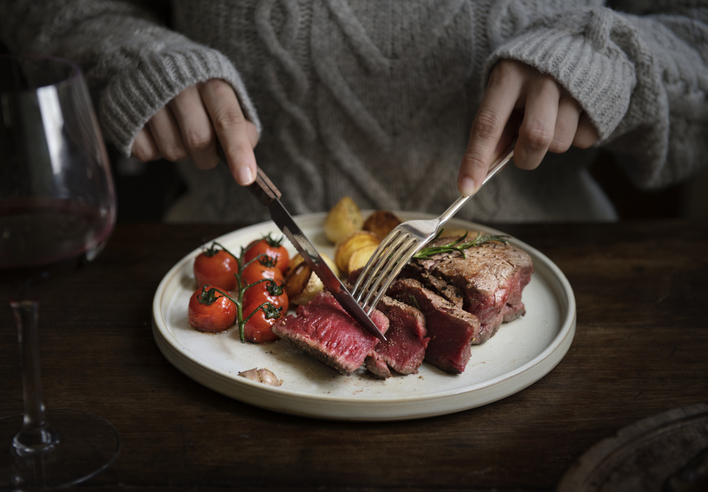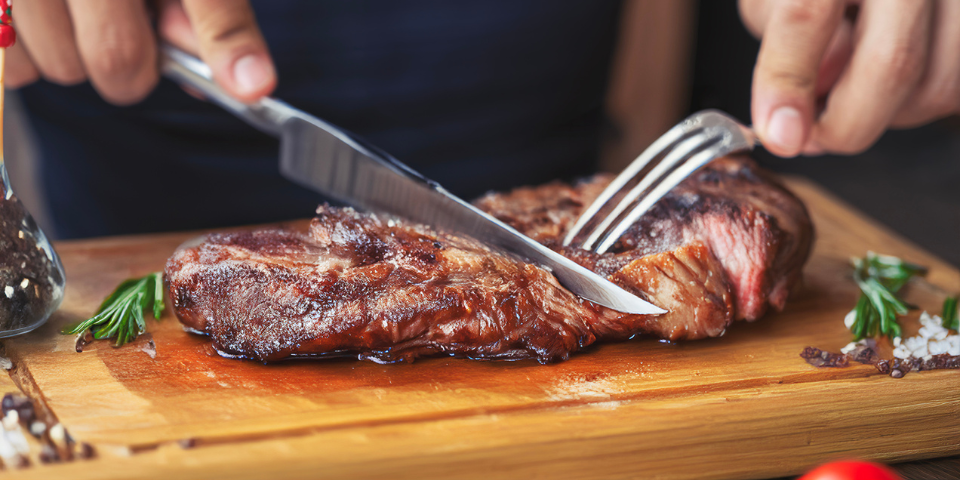Protein is one of the essential building blocks of the human body, essential for muscle building and repair. If you’re interested in gaining muscle and/or shedding fat, you probably know how important it is to increase your daily intake of this macronutrient. But is there an upper limit to how much you should consume? How much protein is considered too much?
There are pillars but it is difficult to overcome. Here’s what the experts say.
Are high protein diets safe?
First of all, it is very difficult to eat so much protein that it negatively affects your health. According to a study published in American Journal of Clinical NutritionThe average American consumes less than half of what is widely considered the “upper limit” of protein intake: 35 percent of daily calories.
However, studies suggest that active people who exceed the upper limit may still not see any negative effects. In a 2016 study published in Journal of Nutrition and Metabolism14 healthy, resistance-trained men alternated between months of eating their normal diet and a “high-protein diet” (more than 3 grams per kilogram of body weight per day). To put that into context, a 154-pound person would need to eat more than 210 grams of protein per day on this diet, which is the equivalent of almost two pounds of chicken.
After a year of monitoring the subjects, the researchers found “no deleterious effects on blood lipid measurements, as well as liver and kidney function,” where the most negative responses to the protein would appear.
Additionally, there is research suggesting that existing recommendations may be too low for certain populations, including adults over age 65, pregnant and lactating women, and healthy children older than 3 years. So while the scientific debate about how much protein is too much continues, it’s important to acknowledge the emerging literature that proves the safety and efficacy of high-protein diets for those who require more of it.
3 effects associated with high protein diets
While studies have explored the potential risks of many proteins, the Dietary Reference Intakes from the Institute of Medicine states that there is “insufficient data” to provide causal relationships between proteins and health complications, thus emphasizing the need for controlled clinical studies.
1. Stomach irritation/discomfort
Some people may experience gastrointestinal problems resulting from protein supplementation. This may be attributed to the lactose content of some protein shakes, such as those containing whey protein concentrate. In these cases, using whey protein isolate or plant-based proteins is less likely to lead to these problems, as they contain less lactose than whey protein concentrate or none at all.
Potential GI issues can also come from whole foods. “If you’re eating too much animal-based protein and not enough complex carbohydrates, which contain fiber, you may experience mild constipation,” explains Quyen Vu, MS, RDN.
2. Kidney problems
Several studies have reported a link between high-protein diets and kidney function. However, it’s “extremely rare” for exercisers to develop kidney problems or other metabolic disorders due to high protein consumption, says Glenn Gaesser, PhD, FACSM, professor of exercise physiology at Arizona State University.
3. Matters of the heart
Some studies suggest that eating too much protein can affect the cardiovascular system.
“Several population-based cohort studies show a higher risk of premature mortality associated with diets that are high in protein, such as the classic low-carbohydrate diet, which is much higher in protein than the typical American diet,” says Gaesser.
However, he continues, “The higher protein intake, in itself, may not be the problem, but other characteristics of the diet, such as the high amount of animal fat and the low amount of fiber-rich foods.”
Can eating too much protein affect weight loss?

In a word, yes. Protein is a source of calories. If your goal is to lose weight, it is important to create a calorie deficit, a state in which you are burning more calories than you are taking in. deficit, which can impair weight loss.
“Protein that is not used for normal growth and maintenance functions of the body can be used for energy, if it is lacking from other sources, and can be turned into fat,” says Mindy Haar, Ph.D., RDN, CDN , FAND. a registered dietitian and assistant dean at the New York Institute of Technology School of Health Professions. “If consuming too much protein causes you to consume more calories than you need, you will gain weight.”
However, protein is still an integral part of most weight loss efforts. A meta-analysis of 24 studies found that calorie-restricted, high-protein diets produced more positive changes in overall body composition than a standard-protein diet. This is likely because protein promotes satiety and can help preserve muscle.
How do you know if you’re eating too much protein?
Your first clue will probably be a colic or some other minor gastrointestinal drama. Even if you have courage of steel, know that it is possible to eat more protein than you can efficiently process.
“Your body can only use a certain amount of protein in one sitting—roughly 30 grams,” says Lisa Moskovitz, RD, CDN, CEO of the New York Nutrition Group. “This is equivalent to about four ounces of cooked chicken breast or cooked fish, one cup of Greek yogurt, or two cups of black beans.”
It is also important to space protein intake throughout the day because the body does not store excess protein.
“I see a lot in my practice that athletes try to pack their protein intake into one or two meals,” says Maddi Osburn, RDN, LD, a registered dietitian in Wichita, Kansas. “If an athlete consumes too much protein in one or two meals, they will not get the optimal muscle growth response and it will either be excreted or stored as fat. In addition, eating too much protein can replace other important nutrients—such as carbohydrates, fats, and fiber—that are just as important for optimal recovery and performance.


